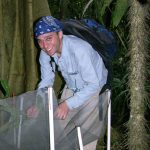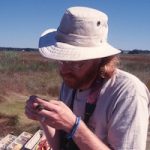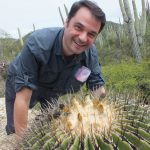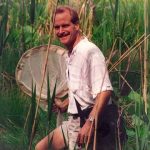Not surprisingly, many research groups in the Department of Ecology and Evolutionary Biology study ecology in one form or another. Ecological research in EEB includes disease ecology, (meta)community ecology, ecosystem ecology, ecology of plant-insect interactions, paleoecology, conservation ecology, and even carrion ecology!
| Photo | Name | About |
|---|---|---|
 | Robert Bagchi | The Bagchi Lab studies the processes that maintain biodiversity in natural ecosystems (particularly in the tropics), how human activity might affect this biodiversity, and the role of biodiversity in the provision of ecosystem functions/services. |
 | Daniel Bolnick | The Bolnick Lab studies the evolution and ecology of variation within species, evolutionary immunology, host-parasite co-evolution, and speciation. I combine observational natural history with experiments, theory, and genomics. |
 | Andrew Bush | The Bush Lab studies paleobiology, including Phanerozoic trends in ecospace utilization and biodiversity, employs gradient analyses of patchy paleoecologic distributions, and focuses on the stratigraphy and extinction in the Late Devonian of the Appalachian Basin. |
 | Chris Elphick | The Elphick Lab studies avian conservation ecology, especially in coastal and farmland settings, habitat loss, climate change, and large-scale conservation planning. |
 | Carlos Garcia-Robledo | The Garcia-Robledo lab studies the evolutionary ecology of plant-insect interactions, adaptation to novel environments (e.g., novel hosts, climate change), molecular biology, insect physiology, and demography. |
 | Sarah Knutie | Research in the Knutie lab spans both fundamental and applied ideas in disease ecology and evolution and studies the disease ecology of birds and amphibians, host-microbe interactions, ecotoxicology, invasive species biology, and behavioral ecology. |
 | Colin Kremer | The Kremer Lab studies interactions between ecology, evolution, and physiology in variable and changing environments, using math, statistics, and experiments involving phytoplankton. |
 | Jeff Seemann | The Seemann Lab studies plant responses to the environment from the level of genes to ecosystems, with a focus on photosynthesis, the global carbon cycle, and the responses of terrestrial ecosystems to rising atmospheric CO2. |
 | Stephen Trumbo | The Trumbo Lab studies insects, behavior, physiology, and carrion ecology. |
 | Mark Urban | The Urban Lab studies community ecology, eco-evolutionary dynamics, microgeographic adaptation, global climate change, and metacommunity ecology. |
 | David Wagner | The Wagner Lab studies systematics and phylogenetics, especially of the Lepidoptera, insect behavior and ecology, and invertebrate conservation. |